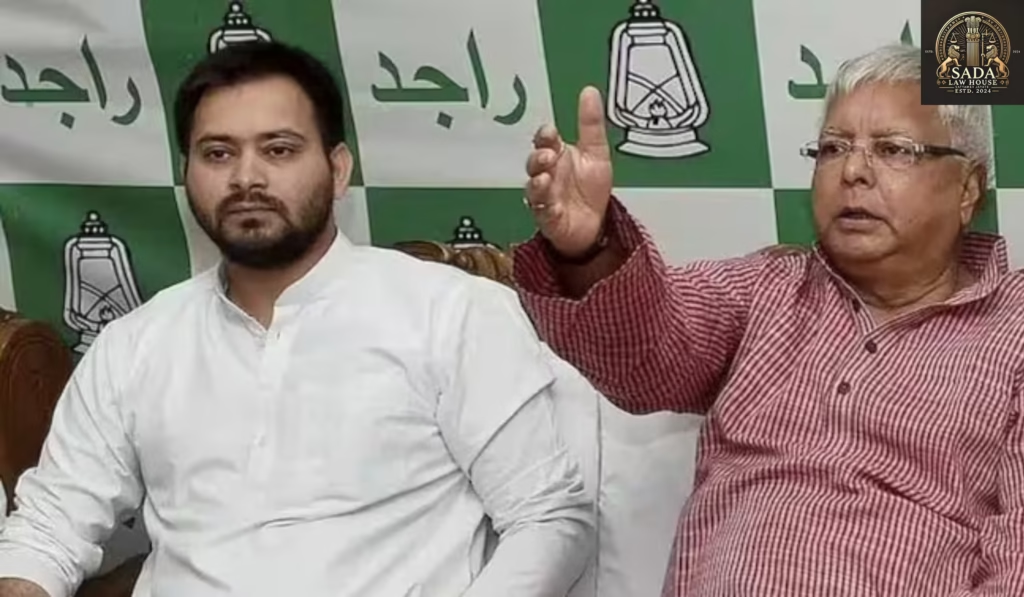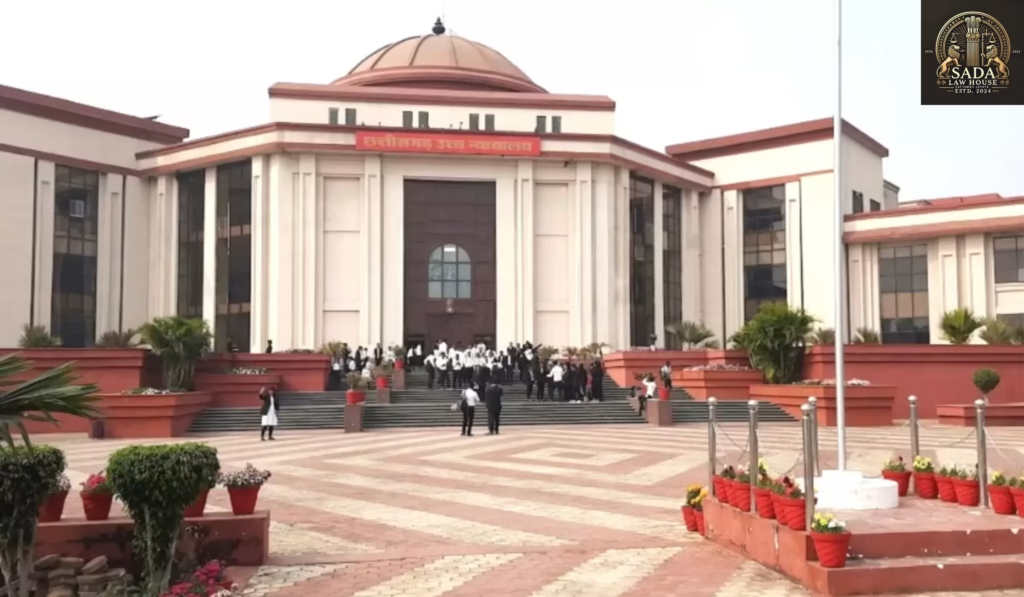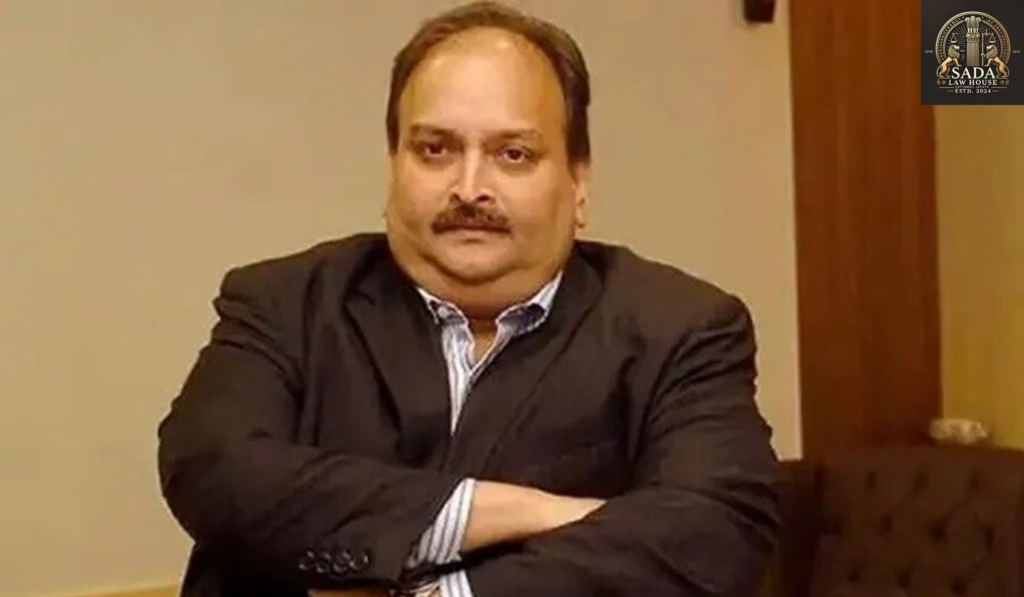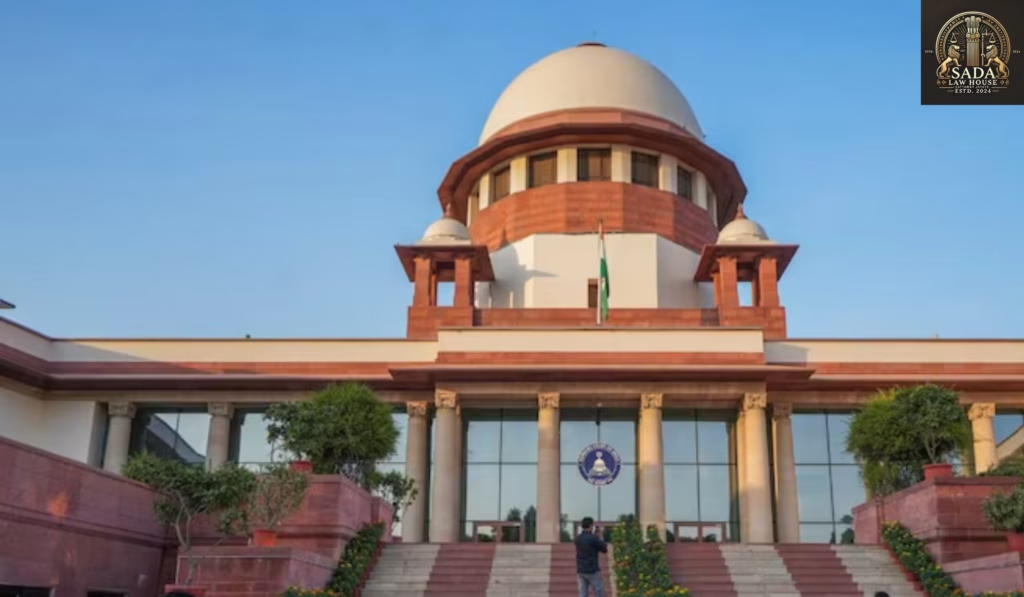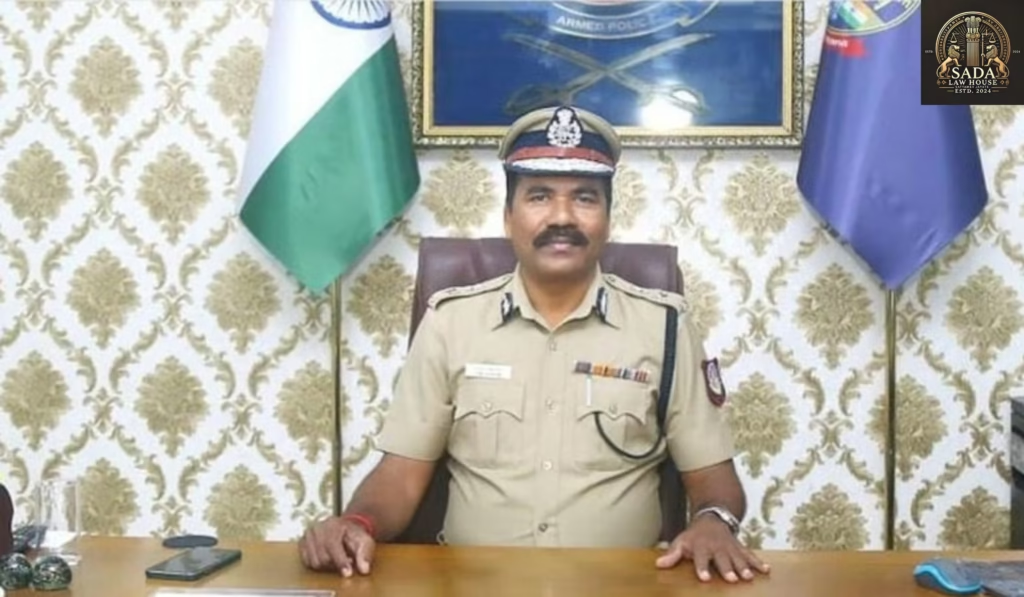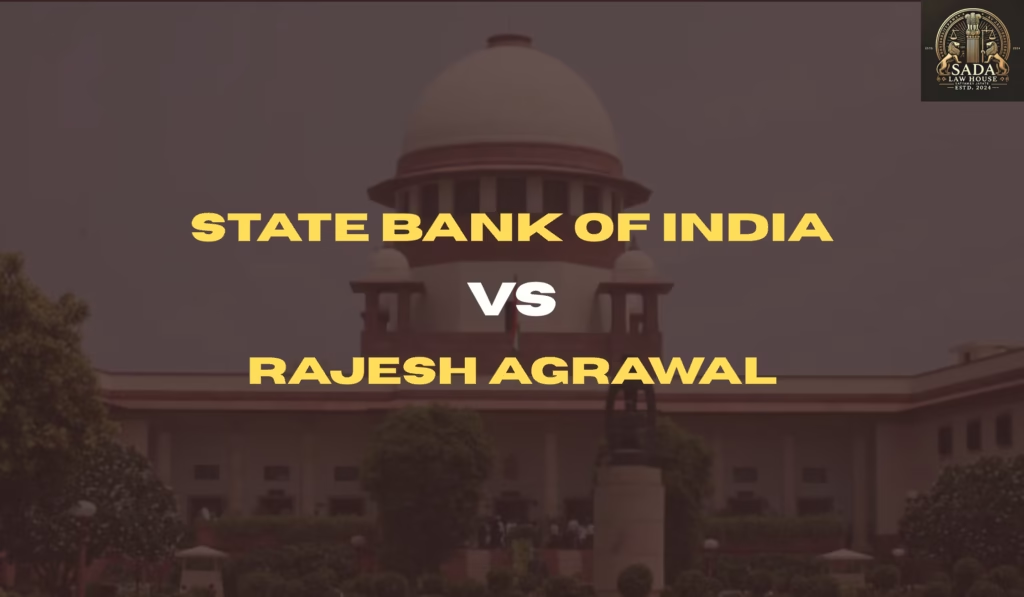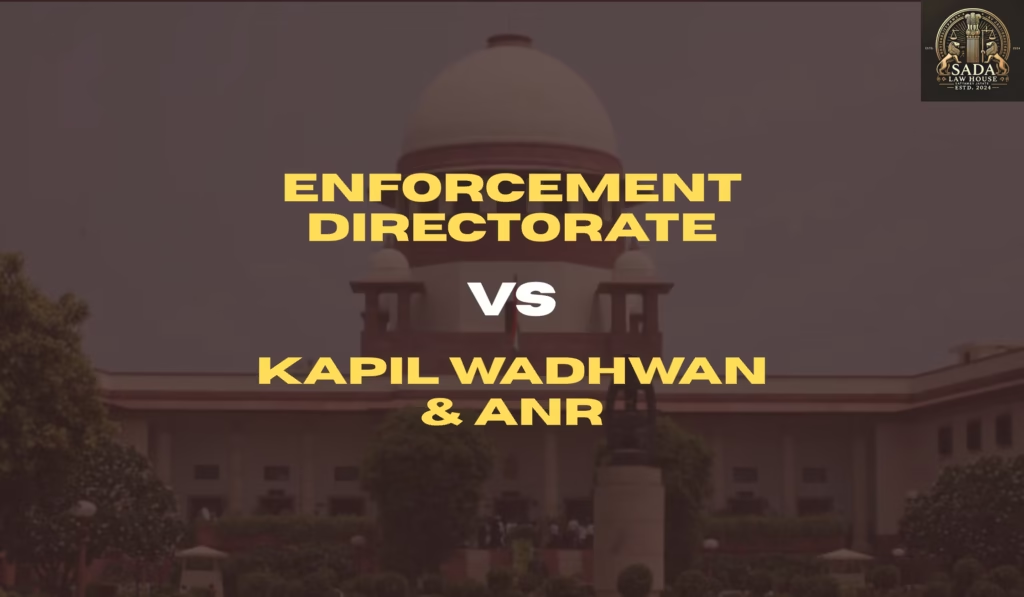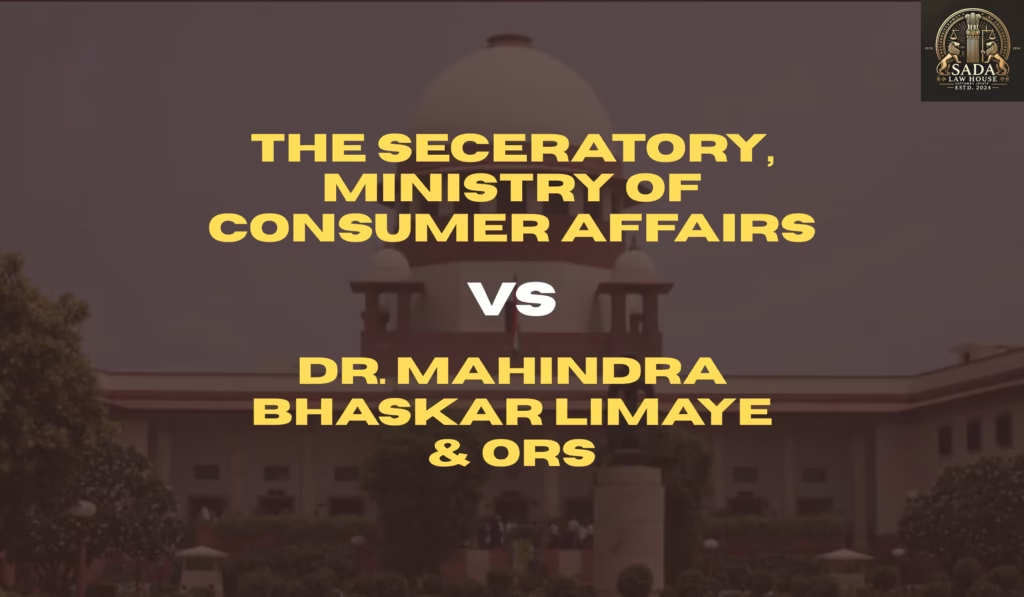ED Moves to Fast-Track Charges Against Lalu Prasad Yadav and Family in IRCTC Scam and Land-for-Jobs Case
Trending Today ED Moves to Fast-Track Charges Against Lalu Prasad Yadav and Family in IRCTC Scam and Land-for-Jobs Case Chhattisgarh High Court Orders ₹2 Lakh Compensation in Custodial Death Case, Cites Police Misconduct Supreme Court Rules Title Deed Essential for Property Ownership in Landmark Judgment Mehul Choksi Sues Indian Government in London Over Alleged Abduction From Antigua Supreme Court Stays Contempt Proceedings Against Bengal Police Officers Over 2019 Howrah Lathicharge Incident JOB OPPORTUNITY AT GREENFINCH LEGAL SERVICES PVT. LTD., ANDHRA PRADESH LEGAL JOB OPPORTUNITY AT BURGEON LAW Tamil Nadu ADGP Arrested Following Madras High Court Order in Teenage Abduction Case Involving MLA LEGAL JOB OPPORTUNITY AT A. K. SINGH & ASSOCIATES, MUMBAI LEGAL JOB OPPORTUNITY AT ZIMYO, GURUGRAM ED Moves to Fast-Track Charges Against Lalu Prasad Yadav and Family in IRCTC Scam and Land-for-Jobs Case KASHISH JAHAN 19 June 2025 The Enforcement Directorate is expediting the framing of charges against Lalu Prasad Yadav, Rabri Devi, and Tejashwi Yadav in connection with the IRCTC scam and land-for-jobs case, signaling a crucial phase in high-profile political corruption cases ahead of Bihar elections. ED to Fast-Track Charges Against Lalu Prasad Yadav and Family in Corruption Scandals In a pivotal move that has stirred national attention, the Enforcement Directorate (ED) informed a Delhi court of its readiness to expedite the framing of charges against prominent Rashtriya Janata Dal (RJD) leader Lalu Prasad Yadav, his wife Rabri Devi, and their son Tejashwi Yadav. The charges relate to alleged money laundering activities tied to the high-profile IRCTC scam and the controversial land-for-jobs scandal, both reportedly committed during Lalu Yadav’s tenure as Railway Minister. The ED counsel indicated that arguments on charge framing are nearing conclusion, potentially setting the stage for a full-scale criminal trial. IRCTC Scam and Land-for-Jobs Case: A Timeline of Controversy The cases have lingered in pre-trial stages for several years, drawing criticism for prolonged delays in prosecuting alleged political corruption. The IRCTC scam involves accusations of awarding contracts in exchange for illicit financial benefits, while the land-for-jobs case claims land was acquired at throwaway prices from job seekers in return for employment in the Indian Railways. ED’s Legal Push Marks Shift Toward Swift Justice The ED’s decision to fast-track these cases underlines a renewed focus on preventing economic offences from being lost in procedural backlogs. This move is seen as part of a broader strategy to ensure accountability in high-profile corruption cases, especially those involving political figures. Political Fallout and Allegations of Vendetta Defense lawyers representing the Yadav family argue that the charges are politically motivated and lack substantial evidence of personal financial gain. They assert that the investigation is a result of political vendetta, aimed at damaging the family’s image ahead of the upcoming Bihar elections. Despite these claims, the judicial process is now likely to center on evidentiary review and witness testimony, moving from speculation to legal substantiation. Implications for Bihar Politics As Bihar approaches a critical election cycle, the trial’s outcome could significantly impact public sentiment and electoral dynamics. The Yadav family, with deep roots in Bihar’s political fabric, continues to be a central figure in state politics. The legal developments in the IRCTC and land-for-jobs cases are expected to shape not just courtroom outcomes but also influence the political landscape of Bihar in the coming months. Leave a Reply Cancel Reply Logged in as Sada Law. Edit your profile. Log out? Required fields are marked * Message* Live Cases ED Moves to Fast-Track Charges Against Lalu Prasad Yadav and Family in IRCTC Scam and Land-for-Jobs Case Sada Law • June 19, 2025 • Live cases • No Comments Chhattisgarh High Court Orders ₹2 Lakh Compensation in Custodial Death Case, Cites Police Misconduct Sada Law • June 19, 2025 • Live cases • No Comments Supreme Court Rules Title Deed Essential for Property Ownership in Landmark Judgment Sada Law • June 19, 2025 • Live cases • No Comments 1 2 3 … 5 Next »

